Unlock your genetic potential or gift the power of personalized health. Browse our Supersaver Packs now.
Rheumatoid arthritis (RA) is a chronic autoimmune condition where the body’s immune system attacks the tissues in joint linings. While the exact cause of RA is unknown, researchers think it may be due to genetic, hormonal, environmental, and lifestyle-related factors. While there’s no cure for RA, the right treatments can relieve some symptoms. These symptoms differ across the 4 stages of rheumatoid arthritis. Learning about these stages can help you offer meaningful support to RA patients.
While most people associate RA with chronic joint pain and inflammation, it is actually a progressive autoimmune disease.
It progresses through four unique stages, namely:
In the earliest stage of RA, people experience mild, localized symptoms.
What Happens: RA-related inflammation remains limited to the joint for now.
The tissues swell, often causing pain. While the bones are not damaged, the joint lining is inflamed.
Symptoms: Stiffness, pain, and joint swelling like the fingers and knuckles.
The symptoms are mild and hard to detect at this stage, and most people at this stage of RA are not aware of their condition.
Prompt management of RA at stage 1 includes a 12-week treatment, and most cases end with successful remission.
Since doctors often don’t diagnose RA at stage 1, it usually progresses to stage 2 or the moderate stage.
What Happens: Joint lining inflammation begins to damage the bone and cartilage around it.
Symptoms: While symptoms may not become apparent at this stage, some people may experience:
Despite these symptoms, blood tests do not reveal RA antibodies yet, making it hard to diagnose at this stage.
At this stage, the disease is officially deemed severe.
What Happens: Bone damage at the joint continues and progresses to the cartilage.
With the joint cushion damaged, the bones rub together, causing pain and swelling.
Symptoms: Besides pain and swelling, other symptoms may become apparent, like:
At the final stage of RA, joint movement is almost entirely irregular.
Progression to stage 4 takes many years; not everyone experiences every stage.
What Happens: Bone, cartilage, and the entire joint unit are gradually destroyed.
Without any separation or cushion, the bones fuse, preventing any movement at the joint.
Symptoms: While there is no inflammation at the joint at this stage, people may still experience
If your doctor suspects your symptoms indicate rheumatoid arthritis, they will recommend a Rheumatoid Factor (RF) test.
RFs are antibodies of different types and participate in forming immunoglobulin G (IgG).
People with RA have an elevated (>20 IU/ml) rheumatoid factor (RF) in their blood.
This elevation also helps diagnose diseases like tuberculosis and Sjogren’s syndrome.
Based on the presence of this RF and antibodies called anti-cyclic citrullinated peptides (anti-CCPs), rheumatoid arthritis can be of two types:
Seropositive individuals may also have manifestations like rheumatic nodules and vasculitis outside the joint.
Though RA is a progressive disease, each patient’s journey could differ.
People with stages 1 and 2 of rheumatoid arthritis usually do not experience any symptoms.
As the disease progresses to stages 3 and 4, they may experience the following:
How your rheumatoid arthritis progresses depends upon many factors:
Understanding how your disease is likely to progress also helps your doctor determine the most effective treatment plan for you.
An RA diagnosis isn’t necessarily the end of the world.
Some tips to prevent the progression of the disease include:
Treating rheumatoid arthritis is primarily aimed at optimum symptom management and sending the disease into remission.
Common treatment modalities used for rheumatoid arthritis include:
Remaining sedentary, being irresponsible with your medications, and staying down in the dumps for extended periods can worsen rheumatoid arthritis significantly.
Cool packs, gentle exercises, hot baths, and pain medication can all help combat a sudden, painful rheumatoid arthritis flare-up.
Orange, tomato, pineapple, and carrot juices contain many antioxidants that help combat inflammation from rheumatoid arthritis flare-ups.
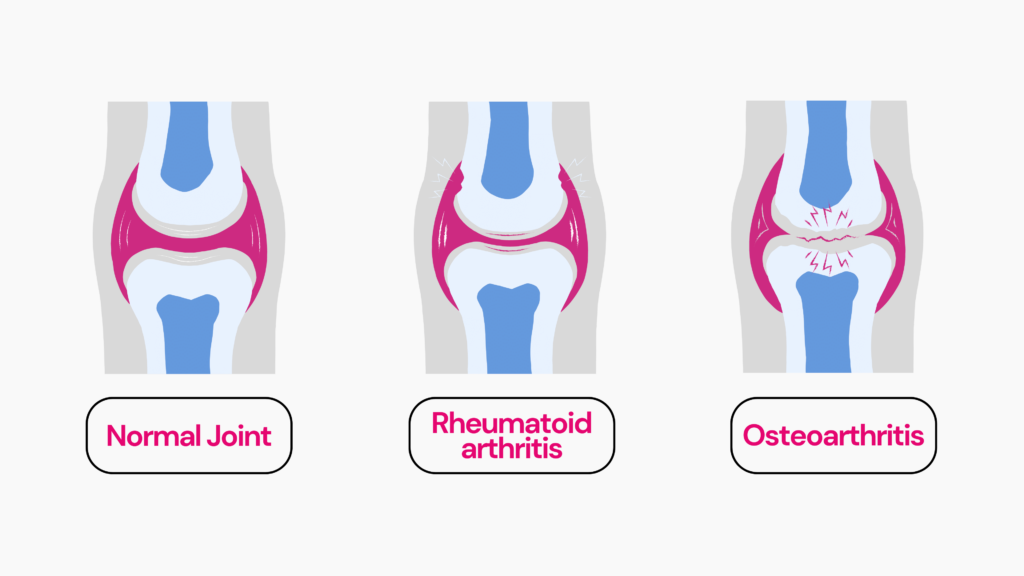
Is Arthritis Genetic?
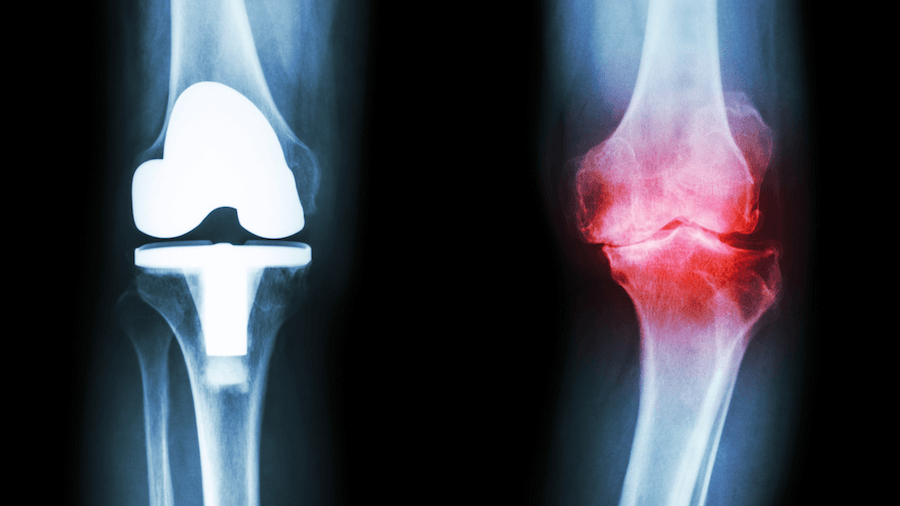
Is Osteoarthritis Genetic?

The 7 Stages Of Lewy Body Dementia, Explained
Starting your day with a combination of protein powder and coffee, or "proffee," has become a popular choice for fitness enthusiasts and health-conscious individuals alike. This trendy beverage promises to boost energy levels, support weight loss, and enhance workout recovery—all in one cup. But is it as effective and safe as it sounds? Experts weigh in on this trendy drink, its benefits, and potential risks.
Yes, you can. Adding protein powder to your coffee may just be one of the best ways to increase your protein intake and get your caffeine kick in the mornings.
This drink, which goes by the nickname Proffee, is commonly made by adding a scoop of whey powder to black coffee or espresso.
Adding protein powder to coffee is generally considered safe.
However, it is important to adjust the amount of protein powder to meet your needs.
It’s generally recommended to consume not more than 1-2 scoops per day.
Similarly, drinking 2-3 cups of coffee is safe for most; however, some may need to consume less.
Protein is key for building and repairing bones, muscles, cartilage, skin, hair, and nails. It is best taken in small amounts throughout the day.
The recommended intake of protein is around 0.25 - 0.4 g per kilogram of body weight.
Adding protein powder to your morning coffee can boost your protein intake early in the morning, making your breakfast wholesome.
Both protein and caffeine have proven benefits when it comes to weight loss.
Protein is highly satiating - meaning it can keep you fuller for longer, thereby curbing calorie consumption throughout the day.
It also helps burn more calories since more energy is required to digest protein compared to carbs or fats.
Caffeine lowers the levels of hunger hormones, increases the levels of satiety hormones, and boosts metabolism, thereby aiding weight loss.
For people engaging in intense cardio and strength training, the protein intake must be 1.2 - 1.7 g per kilogram of body weight.
Protein helps muscle recovery post-workout and caffeine aids in muscle contractions and delays muscle fatigue.
Consuming proffee before or after a workout offers similar benefits.
Not many are a fan of the taste of protein powders and shakes. So, if coffee is your thing, then adding proffee can be a good option for you.
Surveys suggest that while many skip their breakfasts, most have their morning coffee.
Although not a meal replacement, adding protein to coffee is an easier way to get your morning dose of protein.
If protein powder is added to blended oats, peanut butter, seeds, and instant coffee, your new proffee can be your breakfast!
Scientific research supports the potential benefits of combining coffee and protein powder, though the evidence for some claims is stronger than others.
Did you know your genetics may influence how your body processes caffeine?
Some people are naturally "fast metabolizers" of caffeine, while others may experience jitters and slower caffeine clearance due to genetic factors. Curious about how caffeine works with your unique biology?
Check out our blog post: How It Works: Caffeine and Genetics
or explore our Genes and Caffeine Report to discover your caffeine sensitivity profile.
While proffee is promoted as a convenient way to boost protein intake and enjoy your caffeine fix, its effectiveness and safety can depend on your individual health needs.
To provide clarity, nutrition experts share their insights on the benefits, potential drawbacks, and best practices for incorporating protein powder into your coffee routine.
Here’s what they have to say.
Anna Bohnengel, a registered dietitian and fertility nutritionist, notes that women (or those assigned female at birth) are more prone to elevated cortisol levels in the morning.
Drinking coffee on an empty stomach can worsen this.
To counteract this, she recommends consuming protein alongside coffee to maintain muscle and support fat metabolism.
However, adding protein powder to coffee isn’t the only solution—a protein-rich breakfast paired with coffee works just as well.
Catherine Gervacio, a registered nutritionist-dietitian and certified exercise nutrition coach, highlights that people with gut issues should be cautious when combining protein powder with coffee, as it could lead to an upset stomach.
She also advises those with pre-existing health conditions, such as kidney disease, to carefully plan their macronutrient intake.
Catherine insists on consulting a healthcare provider before incorporating proffee into their diet.
Bree Phillips, a registered dietitian at UCSF Health, emphasizes the convenience of protein coffee for those struggling to meet their protein requirements throughout the day.
She explains that adding protein to coffee can help fill nutritional gaps, particularly for people who often skip meals or find it difficult to incorporate enough protein in their diet.
However, she also warns people to evaluate their actual protein needs before jumping on this trend.
Dawn Menning, a registered dietitian, also offers similar views in terms of proffee being a convenient way to consume protein.
Experts agree that while protein coffee offers convenience and potential nutritional benefits, it’s important to ensure it fits your unique health needs.
For individuals with specific health concerns, consulting a healthcare provider can help determine whether this trendy beverage is a good fit.
Whether you choose proffee or a traditional protein-rich breakfast, the goal is to balance nutrition and personal wellness.
Adding protein powder to coffee is safe for most people, but here are some potential side effects:
*to mitigate risks, choose clean-label products from reputable brands.
By understanding these side effects and taking preventive measures, you can safely enjoy the benefits of protein powder in coffee without compromising your health.
Adding protein powder to your coffee is simple and can be done in a few easy steps. Here’s how you can make your own “proffee”:
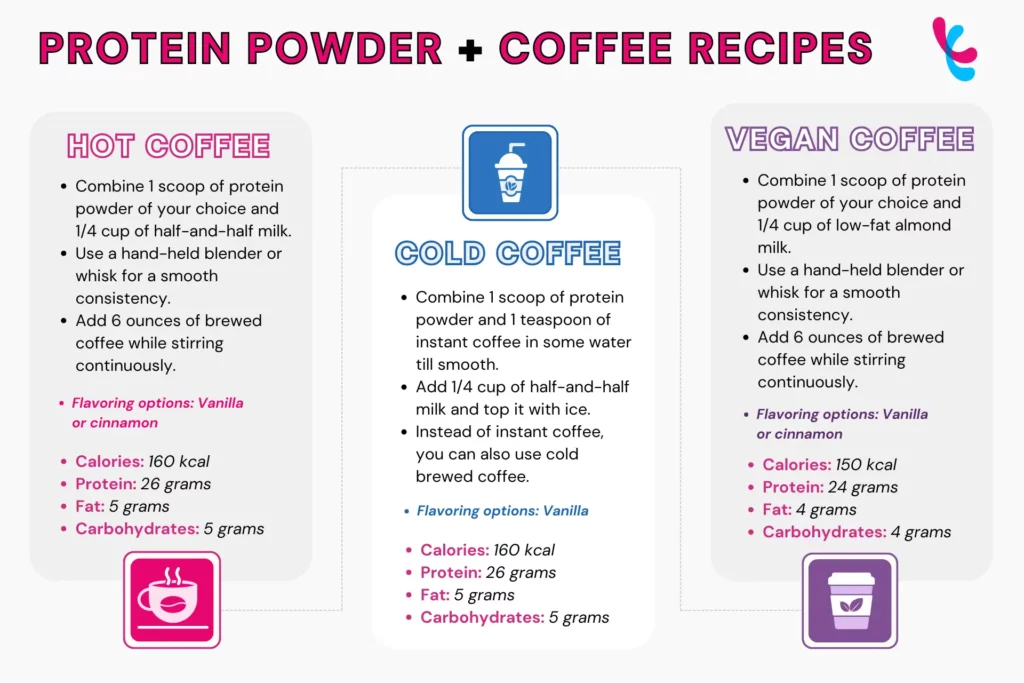
Yes, you can drink coffee after consuming protein powder. Many people combine the two for convenience or have them separately, depending on their preferences.
No, there is no strong evidence to suggest that coffee interferes significantly with protein absorption. However, excessive caffeine intake may affect digestion in some individuals.
It’s generally recommended to use one scoop of protein powder (20-30 grams) in your coffee, but this may vary based on your daily protein requirements and dietary preferences.
Consuming protein before coffee can help stabilize cortisol levels, particularly in the morning, and reduce the potential muscle breakdown caused by elevated stress hormones.
Whey protein is one of the most popular options due to its smooth texture and fast absorption. Plant-based proteins, like peas or soy, can also work, depending on dietary preferences.

Is Vitamin Water Good For You? What The Experts Say

Exercise Snacking: The Key To Staying Fit When You’re Too Busy

Top Five Teas For Better Gut Health In 2024
Many Americans may be MTHFR deficient and unaware of the same. MTHFR gene mutations can lead to nutritional deficiencies, fatigue, mental health issues, cardiovascular problems, and even neural problems in growing fetuses.
MTHFR deficiency can be handled with dietary supplements. Keep reading to learn the best multivitamins for MTHFR mutations and ways to combat the effects of the mutated gene.
The MTHFR (methylenetetrahydrofolate reductase) gene provides instructions for the production of the methylenetetrahydrofolate reductase enzyme.
This enzyme helps process various amino acids in the body. Amino acids are the building blocks of proteins.
The MTHFR enzyme helps convert an amino acid called homocysteine to methionine.
Methionine is an essential amino acid involved in hundreds of everyday operations at the cellular level.
The MTHFR enzyme also converts one form of folate (5,10-methylenetetrahydrofolate) into the active form called 5-methyltetrahydrofolate so the body can use it.
Certain variations in the MTHFR gene can lead to MTHFR deficiency.
This condition is caused by low levels of MTHFR enzymes in the body due to impaired functioning of the MTHFR gene.
People with MTHFR gene mutations may have high levels of homocysteine and low serum folate levels.
One commonly noted Single Nucleotide Polymorphism (SNP) in the MTHFR gene is rs1801133.
People carrying the TT genotype of this SNP may have significantly high levels of homocysteine and lower levels of serum folate.
According to studies, about 25% of Hispanics and 10-15% of Caucasians in North America are born to have the TT genotype of this SNP and have an increased risk of developing MTHFR deficiency.
MTHFR mutations affect the ability of the body to convert folate into its usable form. So, people with MTHFR mutations may have folate or vitamin B9 deficiency.
Vitamin B12 requires the active form of folate to be absorbed by the body. As a result, folate deficiency can, in turn, lead to vitamin B12 deficiency.
While the MTHFR mutation doesn’t directly lead to vitamin B6 (pyridoxine) deficiency, there may be connections between these two.
A 2016 study reports that pyridoxine may help better recycle folate in the body and improve folic acid metabolism.
As a result, vitamin B6 may bring down the buildup of unmetabolized serum folic acid levels.
MTHFR mutations may cause B complex and other nutritional deficiencies. These may lead to various health conditions, including the following.
The risk of developing the conditions depends on the type of MTHFR mutation present.
Methylated vitamins are specially formulated versions of certain B vitamins, like B12 and folate (B9), that are more easily absorbed and utilized by the body.
For some people, especially those with specific genetic variations, regular forms of these vitamins might not be efficiently processed, leading to deficiencies despite adequate intake.
Since MTHFR mutations affect the way the body processes certain vitamins, one of the important ways of handling the condition is nutritional supplementation.
Methylated vitamins are some of the best multivitamins for MTHFR mutation. It is advised to consult with your doctor before you start on any new supplements.
Since people with low levels of the MTHFR enzyme cannot process folate, they may benefit from picking up methyl folate supplements.
Methylfolate is a reduced and more active form of folate that the body can readily use.
Active vitamin B12 is B12 attached to a carrier protein called transcobalamin. This protein in the body helps transport vitamin B12 to the tissues.
This form of B12 is easily absorbed by the system, despite the levels of the MTHFR enzyme.
Pyridoxal-5-Phosphate (P5P) is an active form of vitamin B6 available as a supplement.
Like the other B complex supplements above, the active form of this vitamin is readily absorbed by the body and helps prevent vitamin B6 deficiency in people with MTHFR mutations.
Women with specific MTHFR gene mutations may have a higher risk of developing vitamin D deficiency.
A 2020 study reports that women with the homogenous MTHFR 677TT mutation had lower vitamin D levels than those with the CT and CC genotypes.
As a result, women with a mutated MTHFR gene may benefit from getting their vitamin D3 levels checked regularly to ensure they aren’t deficient.
NAC is an antioxidant and FDA-approved drug derived from the amino acid L-cysteine.
It is commonly used to treat respiratory conditions.
According to studies, NAC may help lower elevated levels of homocysteine in the body, helping convert this amino acid into its active proceeding form.
Glutathione is a type of antioxidant produced in all the cells in the body.
It plays vital roles, including eliminating free radicals, maintaining mitochondrial DNA, helping detoxify the body, and acting as a cofactor for different enzymes.
Homocysteine must be converted into its active form, cysteine, which is then required to produce glutathione.
In people with MTHFR mutation, homocysteine conversion doesn’t happen. This may lead to glutathione deficiency too.
While the MTHFR mutation does not cause magnesium deficiency, this mineral may help reduce cardiovascular risk in people with this gene mutation.
MTHFR mutation increases the risk of heart attacks and strokes. Magnesium can reduce these risks.
Migraines are also a common side effect of low levels of MTHFR enzymes, and magnesium helps with migraines too.
Methylated multivitamins may offer benefits like better energy levels and increased mental clarity for kids, especially those with MTHFR mutations.
However, multivitamins can have side effects like headaches and stomach issues.
Consult a qualified pediatrician before starting your kid on any supplements.
While folic acid is often discussed in the context of pregnancy and for females, the benefits of methylated vitamins for men are not out in the open.
However, excessive intake can lead to side effects, and folic acid can interact with certain medications. It's important to consult a healthcare provider before starting any supplementation regimen.
Some potential benefits include:
Vitamin B12 shots may be one of the best ways to improve B12 absorption by the body.
When compared to oral B12 supplements, shots are quick-acting. These don’t have to be taken as frequently as oral supplements too.
Different types of B12 shots are available, and your doctors may be able to identify the best one for your needs.
The MTHFR A1298C variant may increase the risk of colon cancer and schizophrenia.
A supplement composition of vitamin B6, B12, folate, and glutathione or methionine may benefit people with the MTHFR A1298C variant and reduce cancer and mental health risks.
Individuals with the MTHFR C677T variant may have higher homocysteine levels in the body. Vitamin B12 supplements or shots may help bring these levels down.
Eating foods rich in vitamins B12, B6, folate, vitamin D, and magnesium may help counteract the effects of MTHFR mutations. Here are some of the best foods to choose from.
| Vitamin B12-rich foods | Vitamin B6-rich foods | Folate rich foods | Vitamin D-rich foods | Magnesium-rich foods |
| Beef liver | Beef liver | Leafy greens | Beef liver | Pumpkin and chia seeds |
| Clams | Poultry | Lentils | Cod liver oil | Dry nuts |
| Sardines, tuna, and salmons | Sardines, tuna, and salmons | Broccoli | Sardines, tuna, and salmons | Soybeans |
| Milk and dairy products | Chickpeas | Avocado | Fortified milk and dairy products | Spinach |
| Fortified cereals and eggs | Fortified cereals | Asparagus | Egg yolk | Brown rice |
| Fortified nutritional yeast | Drak leafy greens | Whole grains | Fortified orange juice | Edamame |
A simple blood test may be able to identify specific vitamin and mineral deficiencies.
A combination of a healthy diet and the right supplements can help improve nutritional levels and combat the effects of MTHFR mutations.
If you have an MTHFR mutation, supplementing with vitamin B12 may be beneficial, as these mutations can impair your body's ability to utilize B12 effectively, potentially leading to deficiency symptoms and elevated homocysteine levels. However, it's important to consult with a healthcare provider to assess your specific needs and determine the appropriate dosage and form of supplementation.
For individuals with MTHFR mutations, L-methylfolate (5-MTHF) is generally considered the best form of folate supplementation, as it bypasses the metabolic issues associated with these mutations. L-methylfolate not only effectively increases circulating folate levels but also helps reduce homocysteine levels, which is crucial for cardiovascular health.
Methylated vitamins are already in their active, bioavailable form, making them more easily absorbed and utilized by the body compared to non-methylated forms that require conversion. This can be problematic for individuals with genetic variations such as MTHFR mutations.
When it comes to blood type diets, there are four different types – A, B, AB, and O. Each diet is based on what substances are best for each blood type. Dr. Peter D'Adamo created this diet, and it is said to help manage weight, improve energy levels, and reduce the risk of illness. The diet is based on the theory that your blood type affects your ability to digest certain foods and that eating the right foods for your blood type can help you to be healthier. For example, those with type A blood should avoid meat and dairy, while those with type B blood should eat more green vegetables. Read on to know what is theorized to be the best O blood type diet.
The blood type diet was created by naturopathic physician Peter D'Adamo.
The premise of the diet is that your blood type determines which foods are best for you to eat and which you should avoid.
There are four blood types - A, B, AB, and O - and, according to D’Adamo, each one requires a different diet plan.
The diet is based on the theory that certain lectins (proteins found in food) are incompatible with certain blood types.
Lectins can supposedly cause problems like weight gain, bloating, and fatigue.
By following the blood type diet, you can supposedly avoid these problems.
However, there’s no scientific evidence to back these claims.
Your blood group is inherited from your parents and falls into one of these four groups:
Additionally, the presence of the Rhesus factor (that determines +ve or -ve) results in 8 different types of blood groups.
Some interesting facts about blood groups
D'Adamo asserts that blood types evolved as environmental conditions shaped food preferences and tolerances.
O: Known as the "Hunter," those with this blood type are said to flourish on a diet high in protein-rich meats and low in carbs.
A: Believed to have evolved with the agricultural practices of early farmers, the “Agrarian” group is thought to benefit from a vegetarian diet.
B: The “Nomads” are set to thrive on a diet that includes both meat and dairy products since the blood group appears to have evolved with dairy farming.
AB: Described as the “Enigma” group, those with this blood type are thought to have a mix of A and B types' dietary requirements.
The O blood type diet allows the consumption of most meat products, including cold-water fish.
D’Adamo recommends avoiding dairy products. But the diet allows the occasional consumption of certain dairy products like
Nuts are a great source of protein and good fats, both of which favor O blood groups.
Most vegetables are allowed in this diet.
(list is not exhaustive)
Some recommended fruits include
The most beneficial beans for the O blood type diet include
While most grains are prohibited in this diet, some may be included.
The food can be seasoned with spices and condiments like iodized salt, cayenne pepper, parsley, curry, cocoa, and honey.
Allowed beverages include water, wine, club soda, and tea.
D’Adamo says the diet should also be paired with vigorous aerobic exercise.
He also recommends supplements that target digestive issues.
People with O blood type tend to have higher levels of stomach acid.
Further, a reactive protein called lectin present in many grains interferes with immune responses, which can lead to unwanted inflammation and autoimmunity.
Let’s have a look at the foods to be avoided for O blood type.
The diet plan for people with type O blood excludes
Except for the ones mentioned under “Food to Eat,” all other dairy products should be avoided.
Despite nuts being high in protein and good fat, some don’t make the cut to this diet.
O blood group may not tolerate certain vegetables of the Brassica family, like
Nightshade family
Specific fruits to be avoided include
The following beans should be avoided in this diet
With the exception of the ones mentioned under “Food to Eat,” all other grains should be avoided.
While seasoning your foods, avoid species and condiments like pepper, mayo, tomato ketchup, vinegar, vanilla, pickles, nutmeg, and corn syrup.
Beverages to be avoided include beer, coffee, black tea, and distilled liquor.
What you eat affects how your gene works, and the gene changes you have affect how you process the nutrients in your diet. These genetic variants also answer questions like why some people eat a lot and not put on weight, why certain people can’t consume dairy without experiencing gastrointestinal troubles, and why some people experience caffeine jitters after just one cup of coffee.
Get Your DNA-based Diet Insights Today
The scientific evidence supporting the theory behind the blood type diet is limited and contradictory.
Many studies have been done to examine the validity of this diet, and so far, there is no solid evidence to support its claims.
One significant study on blood type diet was conducted by researchers from the University of Toronto, who analyzed data from 1,455 participants.
The study reported no connection between blood type and dietary effects on health markers such as body weight, cholesterol levels, and blood sugar control.
Hence, the researchers concluded that sticking to a healthy diet is what is important, across all blood types.
Further, they emphasized that no particular blood type benefits from one diet more than the other.
The same was also validated by a randomized controlled trial published in the Journal of the Academy of Nutrition and Dietetics.
The 16-week study subjected its participants to a low-fat vegan diet.
Results indicated a reduction in body weight due to increased insulin sensitivity and lower lipid levels.
A secondary analysis further revealed that there were no significant differences in outcomes among the various blood types.
Experts in nutrition generally regard the blood type diet as having no sound scientific basis.
According to registered dietitian nutritionist Kathleen Zelman, it's a "gimmicky" approach to eating healthily.
She notes that although certain dietary components encourage better eating choices, such as consuming more fruits and vegetables, these advantages are not unique to any one blood type.
Dr. Ahmed El-Sohemy, who led the University of Toronto study, echoes this sentiment.
He asserts that dietary responses are less about blood type compatibility and more about an individual's adherence to healthy eating habits.
According to him, rather than broad advice based on ABO blood groups, effective diets should be tailored to each person's unique health demands.
In conclusion, scientific data does not support the idea that dietary demands are determined by blood type.
Many people may find success with the blood type diet because it places an emphasis on whole foods and reduces processed foods.
To achieve optimal health, a balanced strategy that emphasizes nutrient-rich diets customized to individual health situations is advised.
Despite some potential benefits, doctors and health experts are still apprehensive about it owing to the several drawbacks.
According to a research study, type O exhibited the strongest reactions to dairy, eggs, gluten grains, and nightshades.
In a study conducted to examine the relationship between blood type and longevity, it was reported that 70% of people living past 100 years in the study group had O blood group.
This indicates that the O blood group could be associated with a longer span.
Studies reporting a protective effect of O type against heart diseases and certain types of cancer also support this theory.
Since O blood type is advised to avoid dairy and most grains, flourless bread topped with almond butter and some seeds can be a good breakfast option.
An alternative dish could be scrambled tofu seasoned with cayenne pepper and parsley.
| Food | Allowed | Not Allowed |
| Animal products | Any meat except the ones listed under “not allowed” | Pork Pickled herring Smoked salmon Goose Octopus Caviar |
| Dairy | Butter Certain types of cheese | All dairy products except the ones listed under “allowed” |
| Nuts & seeds | Walnuts Pumpkin seeds Almonds Hazelnuts | Cashew nuts Pista Brazil nuts Peanuts Poppy seeds |
| Vegetables | Any vegetable except the ones listed under “not allowed” | Brassica family Cabbage Brussel sprouts Cauliflower Mustard greens Nightshade family Eggplants Potatoes Shiitake mushrooms Fermented olives Alfalfa sprouts |
| Fruits | Grapefruits Figs Plums Most berries (except ones mentioned in “not allowed”) | Oranges and tangerines Strawberries and blueberries Melons Avocado Rhubarb |
| Beans | Any beans except the ones listed under “not allowed” | Kidney beans Lentils, including domestic, green, and red lentils Copper beans Tamarind beans Navy beans Pinto bean |
| Grains | Rice Millet Amaranth Buckwheat Kasha Kamut Rye Spelt Barley | All grains except the ones listed under “allowed” |
| Spices & condiments | Iodized salt Cayenne pepper Parsley Curry Cocoa Honey | Pepper Mayo Tomato ketchup Vinegar Vanilla Pickles Nutmeg Corn syrup |
| Beverages | Water Wine Club soda Tea | Beer Distilled liquor Black tea Coffee |
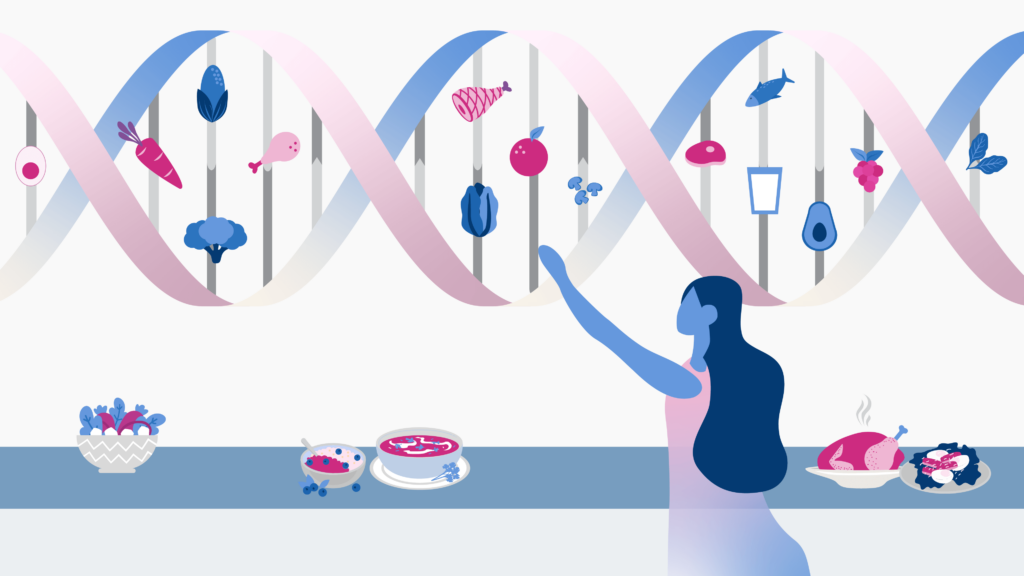
Everything You Need To Know About A DNA Diet Test
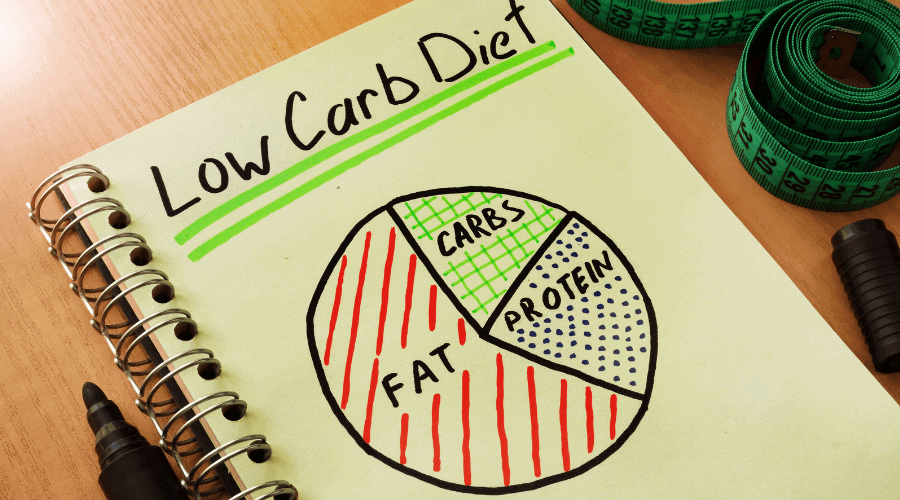
Reviewing The Most Popular Diets Of 2024
If it’s been a while since you mailed out your sample from the 23andMe DNA kit, and you’re wondering when you’ll receive your results, you’re not alone. While their website mentions an average 4-6 week timeline, some users report getting their results as early as 10 days after 23andMe receives their sample. So, then, how long does 23andMe take? This article will inform you about the various steps involved in the analysis process, possible delays, and how fast most consumers receive their DNA analysis results.
23andMe is a company that provides direct-to-consumer genetic/DNA testing and analysis.
The company has over 12.5 million customers worldwide.
Its primary service is a direct-to-consumer genetic test based on saliva samples.
This test includes information about customers’ ancestry, health, and traits.
Recently, the company has come under fire due to its handling of customer data and privacy concerns.
There are multiple steps between registering on 23andMe and receiving your results.
Your homepage keeps you informed about each step of the process.
It shows what stage your sample is on and estimates the date of result delivery.
Once your kit is received at the lab, you should receive your results in 4-6 weeks.
Samples mailed from within the United States can take anywhere between 2-4 weeks to reach the lab.
Once you mail your DNA sample back, it can take up to 10 weeks to receive your results. However, many customers report receiving the results much earlier.
These times are estimates.
The company cannot guarantee that you will receive the reports on the date mentioned.
Over the past two years, 23andMe’s wait time seems to have remained under 25-30 days, which is sufficiently quick.

Several factors can impact the time it takes to get your results:
Certain samples may require additional steps to be processed successfully, which can further increase the wait time.
About Xcode Life
The saliva collection kit is generally dispatched within 1 to 2 business days.
They also offer express shipping at a premium if required.
Once you mail them your unique kit barcode, your reports will be prepared.
In approximately 3 to 4 weeks, once they are ready, an email will inform you that your reports can be accessed in your online account.
AncestryDNA and 23andMe are two of the most popular DNA analysis companies.
The former has a much bigger database with 18 million users, while the latter has 12 million users.
This could mean that the accuracy of the former is higher than the latter.
According to the AncestryDNA website, “it can take up to 5 weeks from the date you mail in a sample for the laboratory to mark it as arrived, and 8 weeks from the date we receive your sample for your results to be ready.”This means that 23andMe processes your report much quicker (by a couple of weeks to a month) than AncestryDNA.
The information in your report depends on the services you have chosen.
23andMe offers four kinds of personal genetic services.
| Service | Description | Price |
| Ancestry | Ancestry breakdown and 30+ trait reports– 80+ personalized reports– Ancestry percentages (to the 0.1%)– 2750+ geographic regions | $99 |
| Health + Ancestry | Everything in Ancestry service +– 150+ personalized reports– FDA-authorized reports– FSA/HSA eligibility | $199 |
| 23andMe+ Premium | Everything in Health + Ancestry service +– Heart health and personalized medicine reports– Health tracker– Health action plan– Historical Matches (new feature) | $199 for the first year, $69/yr after |
| 23andMe+ Total Health | Everything in 23andMe+ Premium +– Next-generation exome sequencing– Biannual blood testing– Access to clinicians | $999 for the first year, $499/yr after |
With the information present in your DNA data, you can uncover insights into several aspects of your health and well-being.
An important part of your 23andMe result is the DNA data, which you can easily access and download from your account.
Your DNA data provides a massive amount of information that you can use to unlock thousands of insights beyond 23andMe.
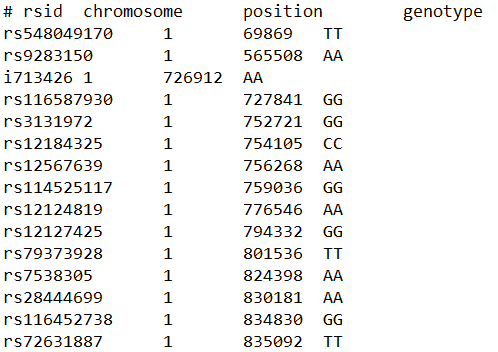
Recently, a hacker advertised that they had stolen millions of “pieces of data,” breaking into the DNA relatives feature that allowed the users to compare ancestry information with users worldwide.
While 23andMe is looking into this and attempting to solve it, they have indefinitely blocked the download of DNA data as a security measure. Here’s how you can submit a request to access your DNA data.
To get your DNA raw data, follow the instructions from this page:
How to download your 23andMe Raw Data for 700+ Health Reports
23andMe cannot determine biological parentage.
The site’s ethnicity service helps link users to their genetic relatives.
The company claims an accuracy rate of more than 99% for its BRCA test.
Despite this, the test could produce false positive or negative results.
Their ancestry test traces your lineage back 8 generations.
Beyond eight generations, it’s hard to track your DNA accurately.
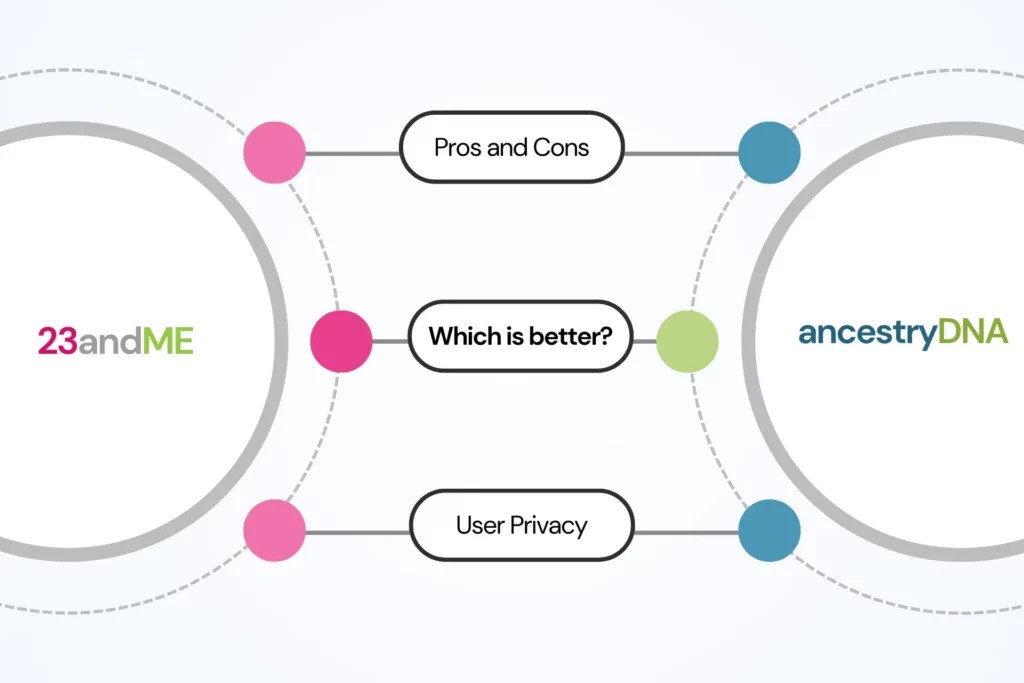
AncestryDNA vs 23andMe: Which Is Better For Raw Data Analysis?

MyHeritage vs 23andMe: Detailed Review and Comparison
Many health experts suggest that magnesium is a prevalent deficiency in the population, but it is also lesser known. However, thanks to the buzz created by TikTok influencers, it's gaining the attention it deserves. While many are aware of magnesium, few know the full extent of its health benefits. This article delves into why magnesium is essential for the body and highlights the top 7 most significant benefits of magnesium for men's health.
Magnesium is a vital mineral that plays numerous roles in maintaining overall health. Despite its importance, many people do not consume enough magnesium in their diets. Here are some of the key functions of magnesium in the body:
In males with low testosterone levels, magnesium can help bring it to optimum levels.
It plays both a direct role and an indirect role by converting vitamin D to its active form, which is required for testosterone production.
Studies suggest that low testosterone (the primary male sex hormone) in older men may be a predictor of type II diabetes and early mortality.
A 2011 study reports magnesium supplements may help improve testosterone production in older adults and decrease the risk of metabolic conditions like diabetes.
Magnesium is key to a healthy heart as it influences neuron signaling and heart muscle contractions.
It also regulates the movement of electrolytes like calcium and potassium into the cells.
A 2013 meta-analysis compared the results of 16 independent studies.
It reports that people with increased circulating magnesium levels had up to a 30% lower risk of developing cardiovascular diseases.
The study further reports that high dietary magnesium levels helped reduce the risk of ischemic heart diseases by up to 22%.
Though the mechanism behind this is unclear, it is hypothesized that magnesium helps with relaxation by acting on certain brain chemicals.
It also may bring down cortisol levels and increase melatonin.
All these can promote better sleep.
A 2012 placebo-controlled clinical trial analyzed the effects of magnesium supplementation on sleep disorders like insomnia and early awakening in older adults.
According to this study, magnesium supplementation helped improve sleep by increasing serotonin and melatonin levels.
Magnesium improves muscle functions and enhances workouts by increasing the glucose availability in the blood.
A 2011 study reports magnesium supplementation can help improve performance strengths in athletes, aiding better handgrip, rotation, and jumping performance.
Working out or physical exercise depletes magnesium levels in the body.
If this is not compensated with dietary or supplementary magnesium, it may affect physical performance.
Men who work out regularly always have the risk of post-workout injuries and muscle aches.
Magnesium helps improve muscle flexibility, decreasing the risk of post-workout injuries.
Low magnesium levels in the body may encourage lactic acid buildup in the muscles.
This can lead to muscle aches, burning, and nausea. Improving magnesium hence helps with better exercise recovery.
According to Mental Health America, about six million American men are affected by depression yearly.
Depression, bipolar disorder, anxiety, psychosis, schizophrenia, and eating disorders are some of the top mental health issues men face in the country.
Studies report magnesium deficiency can lead to various psychiatric symptoms, including depression.
Magnesium affects bone health in men in two ways.
Did you know that certain genes like CASR can increase the risk of magnesium deficiency even when on a nutritionally optimal diet? Get your Gene Nutrition report to understand your nutritional needs.*
*report generated using existing ancestry test DNA data. Xcode does not ship out DNA kits.
Magnesium deficiency, also known as hypomagnesemia, occurs when the body does not receive enough magnesium to support its essential functions.
Although rare in healthy individuals, certain conditions can lead to inadequate magnesium levels.
Magnesium deficiency doesn’t cause significant symptoms immediately. However, chronic magnesium deficiency may lead to the following symptoms.
Men with chronic magnesium deficiency may have a higher risk of developing high blood pressure, type 2 diabetes, and heart diseases.
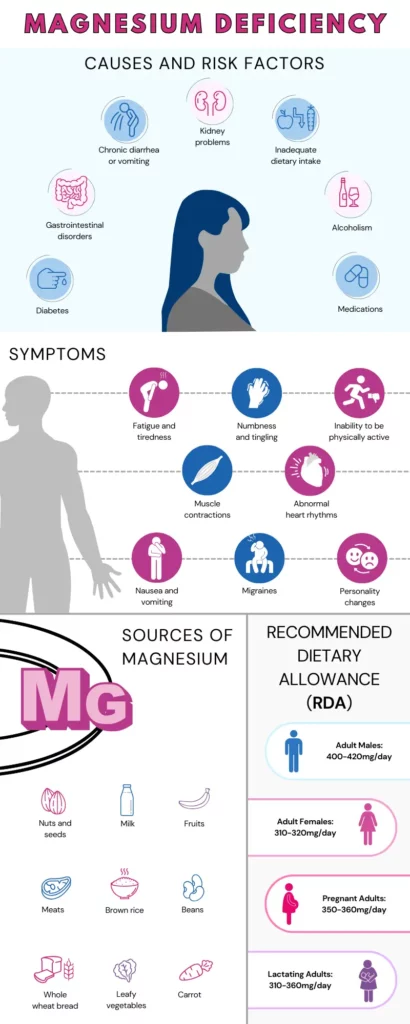
The recommended daily intake of magnesium
| Age | Male | Female | Pregnancy | Lactation |
| Birth to 6 months | 30 mg* | 30 mg* | ||
| 7–12 months | 75 mg* | 75 mg* | ||
| 1–3 years | 80 mg | 80 mg | ||
| 4–8 years | 130 mg | 130 mg | ||
| 9–13 years | 240 mg | 240 mg | ||
| 14–18 years | 410 mg | 360 mg | 400 mg | 360 mg |
| 19–30 years | 400 mg | 310 mg | 350 mg | 310 mg |
| 31–50 years | 420 mg | 320 mg | 360 mg | 320 mg |
| 51+ years | 420 mg | 320 mg |
Source: https://ods.od.nih.gov/factsheets/Magnesium-HealthProfessional/
The following are some of the best magnesium-rich foods.
Depending on the source, tap water or bottled water can also contain traces of magnesium.
You can also increase your magnesium intake daily by choosing magnesium-fortified foods.
While magnesium is essential for numerous bodily functions, overconsumption can lead to serious health issues.
Understanding the risks associated with excessive magnesium intake is crucial, particularly for those considering supplements.
It is always safe to consult a medical practitioner before starting magnesium supplementation.
Depending on your health status and some other factors, your doctor can recommend a suitable form of magnesium.
Some forms of magnesium supplements with better absorption are:
Magnesium can interact with various medications, including:
Consultation is key
Discuss any current medications with your healthcare provider before starting magnesium supplements to avoid potential interactions.
The maximum recommended dosage for males is 420 mg/day and females 350 mg/day.
Anything more than this is considered unsafe and can lead to the side effects mentioned above.
Magnesium supplements can be taken at any time of the day; what is important here is to be consistent with it.
If you are taking magnesium to resolve sleep issues, then it is better to consume it before going to bed.
Yes, men over 50 do need magnesium. In fact, males aged 30 and above require more magnesium (420 mg/day) than those who are younger than 30 (400 mg/day).
Magnesium can preserve cognition as you age and also supports muscle functions.
Studies have established a link between low magnesium levels and increased prevalence of erectile dysfunction.
While further research is needed, it is hypothesized that magnesium may assist with erectile dysfunction in several ways:
Multiple studies have shown that magnesium can help increase testosterone levels in magnesium-deficient males.
The effect is much more on those who engage in regular workouts compared to those with a sedentary lifestyle.
Magnesium is essential for vascular health and can enhance blood flow. It relaxes blood vessels by blocking calcium channels.
It also supports the production of nitric acid, which is required for vasodilation.
Further, magnesium also helps regulate blood pressure, which aids in overall healthy blood flow.